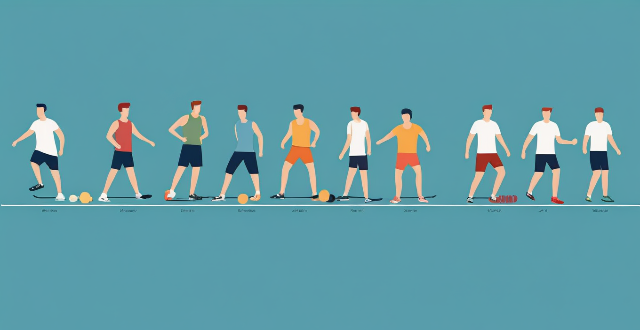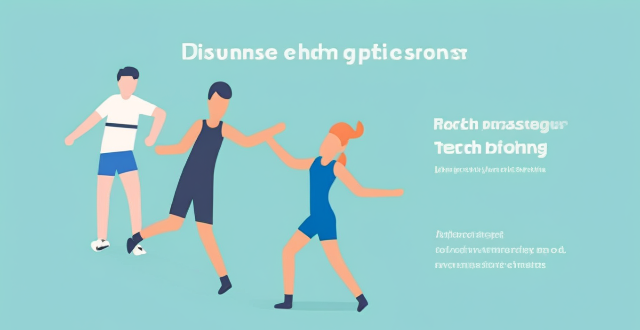Counseling Counselor

Are there any risks or drawbacks associated with sport psychology counseling ?
Sport psychology counseling is a specialized form of psychological intervention that aims to enhance athletic performance, improve mental toughness, and foster personal growth in athletes. While the benefits of sport psychology counseling are well-documented, it is essential to consider any potential risks or drawbacks associated with this type of intervention. The risks and drawbacks include: - Lack of qualified professionals - Overreliance on counseling - Inappropriate interventions - Ethical considerations - Financial costs - Cultural differences To mitigate these risks, athletes should seek out qualified professionals with appropriate certifications and experience in sport psychology counseling, communicate openly with their counselor about their goals and concerns, choose counselors who prioritize ethical practices, explore options such as group sessions, online counseling, or sliding scale fees to reduce costs, and counselors should strive to understand and respect the cultural backgrounds of their clients and adapt their approaches accordingly. By addressing these issues proactively, athletes can maximize the benefits of sport psychology counseling while minimizing any potential negative effects.

What qualifications should a sport psychology counselor have ?
Sport psychology counselors, also known as sport psychologists or mental performance consultants, are professionals who work with athletes to improve their mental and emotional skills related to sports performance. To be an effective sport psychology counselor, one should possess the following qualifications: - Educational Background: A foundation in psychology, sports science, or a related field is essential. Many sport psychology counselors have a master's degree in counseling, psychology, or sports psychology. Some positions may require a doctoral degree (Ph.D. or Psy.D.) in psychology or a related field with a specialization in sport psychology. - Professional Training: Completion of specialized training programs in sport psychology offered by recognized organizations. Hands-on experience through internships or practical placements working with athletes or teams. - Licensure and Certification: Depending on the country, state/provincial licensure as a psychologist may be required to practice independently. Obtaining certification from reputable organizations such as the Association for Applied Sport Psychology (AASP) demonstrates expertise and commitment to the field. - Skills and Personal Attributes: Ability to effectively communicate with athletes, coaches, and other support staff. Proficiency in active listening to understand athletes' needs and concerns. The capacity to empathize with athletes and provide supportive guidance. Flexibility to work with diverse populations and adapt techniques to individual needs. Strict adherence to ethical standards, including maintaining confidentiality. - Continuing Education and Development: Ongoing education to stay current with research and advancements in sport psychology. Participation in workshops, conferences, and continuing education courses. - Ethical Standards and Professionalism: Adherence to a code of ethics set forth by professional organizations. Clear understanding and maintenance of professional boundaries with clients. - Interpersonal Relations: The ability to work collaboratively with coaches, trainers, and other support staff. Understanding and respect for diverse cultural backgrounds of athletes. - Assessment and Evaluation: Proficiency in using psychological assessments to evaluate athletes' mental states. Establishing feedback systems to measure progress and adjust interventions accordingly.

How can counseling help women dealing with infertility-related stress ?
Counseling is crucial for women dealing with infertility-related stress. It helps identify emotional distress, address mental health concerns, build resilience and coping strategies, navigate medical treatment options, and foster hope and healing. By providing emotional support and promoting self-care practices, counseling empowers women to face the challenges of infertility with strength and courage.

How does sport psychology counseling differ from traditional counseling ?
Sport psychology counseling and traditional counseling are two distinct fields that share some similarities but also have key differences. The primary focus of sport psychology counseling is on helping athletes improve their performance by addressing mental and emotional factors that affect their sports performance, while traditional counseling focuses on helping individuals deal with a wide range of personal and emotional issues. The approach used in sport psychology counseling includes techniques such as goal setting, visualization, relaxation techniques, and cognitive restructuring, while traditional counseling uses a variety of therapeutic approaches to help individuals deal with their emotional and psychological issues. The primary goal of sport psychology counseling is to help athletes improve their performance by addressing mental and emotional factors that affect their sports performance, while the primary goal of traditional counseling is to help individuals improve their overall well-being by addressing a wide range of personal and emotional issues. Sport psychology counseling is typically sought by athletes who want to improve their performance or overcome obstacles that are hindering their success, while traditional counseling is sought by individuals who are dealing with a wide range of personal and emotional issues.

What is sport psychology counseling ?
Sport psychology counseling, a specialized area ofSport psychology counseling, a specialized area of mental and emotional aspects of athletic a specialized area of psychology, focuses on the mental and emotional aspects of athletic performance. It involves working with athletes and coaches to improve mental skills, enhance performance, and manage stress related to sports. Key areas include mental skills training, performance enhancement, stress management, team building, injury rehabilitation, and career transition. Benefits include improved performance, increased confidence, reduced anxiety, better teamwork, effective coping mechanisms, and personal growth. Sport psychology counseling is crucial for enhancing an athlete's mental well-being and physical performance.

Can counseling help women overcome postpartum depression ?
Postpartum depression is a serious mental health condition that affects new mothers after childbirth. Symptoms include sadness, anxiety, and exhaustion, making it difficult for women to care for their babies or themselves. Counseling has been shown to be an effective treatment option for PPD. It provides a safe space to express emotions, identifies triggers, builds coping skills, enhances self-care, improves relationships, and supports medication management. If you or someone you know is experiencing symptoms of postpartum depression, consider seeking professional counseling to get the support and guidance needed to overcome this challenging condition.

How can counseling help women cope with body image issues ?
Counseling can help women cope with body image issues by identifying the root cause, challenging negative thoughts, developing healthy coping mechanisms, building self-esteem, addressing mental health concerns, and providing ongoing support.

What are the benefits of seeking sport psychology counseling for athletes ?
Sport psychology counseling provides athletes with numerous benefits, including improved performance, stress management, mental toughness, enhanced team dynamics, and personal growth. Athletes can develop better focus, confidence, and goal-setting abilities, learn to manage anxiety and pressure, cope with adversity, and improve communication and leadership skills within their teams. Additionally, sport psychology counseling promotes self-awareness, life skills, and balance in an athlete's life. Seeking the help of a sport psychology professional can significantly contribute to an athlete's overall well-being and success in their sport.

How long does it typically take to see results from sport psychology counseling ?
Sport psychology counseling aims to improve athletic performance and mental skills. The timeline for seeing results varies based on factors like individual differences, goal specificity, commitment level, and support systems. Short-term results include increased awareness and improved focus within 1-3 months, mid-term results such as enhanced confidence and performance within 3-6 months, and long-term results like sustained success and deepened self-understanding after 6+ months of consistent counseling. Working with a qualified sport psychology professional and maintaining commitment can maximize potential for success in sports and life.

How can sport psychology counseling help with mental health issues such as anxiety and depression in athletes ?
Sport psychology counseling is a valuable resource for athletes dealing with mental health issues such as anxiety and depression. It involves understanding the problem, setting goals, managing stress, building confidence, developing emotional intelligence, and fostering social support. Tailored approaches, consistency, and patience are key to achieving long-term success in improving both mental well-being and performance.

Can sport psychology counseling be beneficial for non-athletes as well ?
Sport psychology counseling can be beneficial for non-athletes as well. The techniques used in sport psychology, such as cognitive restructuring, relaxation training, and visualization, can help individuals manage stress, anxiety, and depression. Additionally, these techniques can enhance performance in various areas of life, develop better coping skills, and increase self-awareness. By applying the principles and techniques used in sport psychology to everyday life situations, individuals can improve their mental health, enhance their performance, develop better coping skills, and increase their self-awareness.

What techniques and strategies are commonly used in sport psychology counseling ?
The text discusses techniques and strategies in sport psychology counseling, which include goal setting, visualization and imagery, self-talk and affirmations, mindfulness and meditation, and breathing techniques. Goal setting helps athletes stay motivated and focused, while visualization and imagery build confidence and reduce anxiety. Self-talk and affirmations enhance self-confidence and motivation, while mindfulness and meditation improve mental clarity and resilience under pressure. Breathing techniques manage stress, anxiety, and tension. Incorporating these methods into training and competition preparation can help athletes achieve their full potential.

How can sport psychology counseling help athletes improve their performance ?
Sport psychology counseling is a specialized field that focuses on the mental and emotional aspects of athletic performance. It aims to enhance an athlete's mindset, motivation, and overall well-being to improve their sporting outcomes. Here's how it can be beneficial: Goal Setting and Motivation: Sport psychologists help athletes set Specific, Measurable, Achievable, Relevant, and Time-bound goals. This clarity in objectives boosts motivation and directs efforts toward improvement. Confidence and Self-Esteem Building: Coaching athletes to replace negative self-talk with positive affirmations enhances their confidence and self-belief. Anxiety and Stress Management: Techniques like deep breathing, progressive muscle relaxation, and mindfulness can reduce anxiety levels before and during competitions. Focus and Concentration: Improving an athlete's ability to focus on relevant cues and block out distractions is crucial for peak performance. Team Dynamics and Interpersonal Skills: Enhancing communication within teams fosters better cooperation and understanding among athletes. Mental Toughness and Resilience: By preparing mentally for setbacks, athletes learn resilience and are better equipped to handle difficulties when they arise. Recovery and Balance: Adequate rest is essential for physical recovery and maintaining mental sharpness. Sport psychologists can guide effective strategies. Helping athletes achieve a balance between their sport and personal lives prevents burnout and keeps them motivated.

How do women navigate power dynamics in relationships ?
In relationships, power dynamics often play a significant role, and understanding how to navigate them is crucial for maintaining healthy partnerships. Here's a detailed exploration of strategies women can use to manage power dynamics effectively: #### **Understanding Power Dynamics** Power dynamics refer to the distribution of influence, control, and authority within a relationship. It's important to recognize that power imbalances can manifest in various forms, such as financial disparity, differences in social status, educational background, or even emotional control. ##### **Key Points to Consider:** - **Awareness:** Recognize when power imbalances are present. - **Equality:** Work towards an equal distribution of power. - **Communication:** Open dialogue about each other's needs and expectations. #### **Strategies for Navigating Power Dynamics** 1. **Open Communication** - Start by discussing your feelings and expectations openly. - Use "I" statements to express yourself without accusing or blaming. - Encourage your partner to do the same. 2. **Setting Boundaries** - Identify what you find acceptable and unacceptable in a relationship. - Clearly communicate these boundaries to your partner. - Respect each other's boundaries equally. 3. **Shared Decision-Making** - Make decisions together rather than one person making all the choices. - Discuss options and consider each other's opinions and preferences. - Resolve conflicts collaboratively. 4. **Financial Independence** - Aim for financial independence where possible. - Discuss money matters transparently and work towards joint financial goals. - Avoid financial dependence on a partner to maintain negotiating power. 5. **Personal Growth and Self-Improvement** - Invest in your own education and career development. - Pursue hobbies and interests outside of the relationship. - Maintain a strong support network of friends and family. 6. **Recognizing and Addressing Manipulation** - Be aware of manipulation tactics such as guilt-tripping, silent treatments, or gaslighting. - Address these behaviors immediately and firmly. - Seek help from a counselor if needed. 7. **Mutual Respect** - Treat each other with respect at all times. - Avoid belittling or undermining your partner, even in arguments. - Acknowledge each other's achievements and contributions. 8. **Seeking Support** - Don't hesitate to seek advice from trusted friends, family, or professionals. - Attend workshops or read literature on healthy relationships. - Consider couples counseling if issues persist. #### **Conclusion** Navigating power dynamics in relationships requires a conscious effort to maintain equality, respect, and open communication. By employing strategies like setting clear boundaries, fostering shared decision-making, and encouraging personal growth, women can ensure their voices are heard and their needs are met within their relationships. It's essential to address any signs of unhealthy power dynamics promptly and to seek support when necessary to preserve a balanced and fulfilling partnership.

What happens if I miss a mortgage payment ?
Missing a mortgage payment can lead to immediate financial penalties, negatively impact your creditworthiness, and put your home at risk in the long term. It's essential to communicate with your lender early and explore all possible options to mitigate the consequences before they spiral out of control.

How do I identify my strengths and weaknesses for career planning ?
This guide emphasizes the importance of understanding one's strengths and weaknesses for effective career planning. It outlines methods such as self-assessment, formal assessments, and leveraging feedback from others to identify these traits. The guide then suggests ways to use this information in choosing a career path, developing strengths, and addressing weaknesses. It encourages seeking opportunities for growth and not being afraid to ask for help.

How do you handle disagreements with your child over homeschooling ?
Handling disagreements with your child over homeschooling requires listening actively, validating their feelings, discussing issues collaboratively, seeking professional advice when needed, and maintaining open communication.

How can employers promote financial knowledge among their employees ?
Employers can promote financial knowledge among employees by offering financial education programs, encouraging retirement planning, providing access to financial counseling services, offering financial wellness programs, creating a culture of financial literacy, providing financial incentives for participating in financial education programs, and offering tax planning services.

How can parents help their children cope with injuries or setbacks in their athletic careers ?
Dealing with injuries or setbacks is a common challenge faced by athletes, and it can be especially difficult for young people who are still developing their skills and confidence. As parents, there are several ways you can support your children during these challenging times. Here are some tips to help them cope with injuries or setbacks in their athletic careers: ## 1. Encourage Open Communication - **Listen Actively**: Encourage your child to talk about how they're feeling and listen actively without judgment. This will help them feel heard and understood. - **Validate Their Feelings**: Acknowledge that their disappointment or frustration is valid, but also remind them that setbacks are a natural part of the learning process. ## 2. Promote Resilience and Growth Mindset - **Focus on Effort Over Outcome**: Remind your child that effort and hard work are more important than the outcome of a game or competition. - **Encourage Learning from Mistakes**: Emphasize that every setback is an opportunity to learn and grow as an athlete. ## 3. Seek Professional Support - **Consult with Medical Experts**: If your child has sustained an injury, consult with medical professionals to ensure proper treatment and rehabilitation. - **Consider Psychological Support**: In some cases, working with a sports psychologist or counselor may be beneficial for your child's mental well-being. ## 4. Provide Practical Support - **Assist with Rehabilitation**: Help your child stay committed to their recovery by providing transportation to physical therapy appointments or assisting with exercises at home. - **Offer Emotional Support**: Be available to offer comfort and encouragement when your child needs it most. ## 5. Maintain a Balanced Perspective - **Keep Things in Perspective**: Remind your child that while sports are important, they are just one aspect of life. Encourage them to maintain balance by participating in other activities they enjoy outside of sports. - **Model Resilience**: Show your child how to handle adversity by modeling resilience and a positive attitude in your own life.

How do sports psychologists assist coaches in understanding and managing their athletes' mental health ?
Sports psychologists assist coaches in managing athletes' mental health by providing education, individual assessments, mental skills training, counseling, team building activities, crisis intervention, and feedback. This support helps coaches create a supportive environment for athletes to perform at their best mentally and physically.

How do I manage debt effectively and pay it off quickly ?
Managing debt effectively and paying it off quickly requires a combination of discipline, strategy, and sometimes professional advice. Here are some steps you can take to get started: ### Assess Your Debt Situation - **Understand Your Debts**: List all your debts and identify high-interest debts. - **Determine Your Budget**: Calculate your monthly income and evaluate your expenses. ### Create a Debt Repayment Plan - **Choose a Repayment Method**: Avalanche or Snowball method. - **Make a Budget and Stick to It**: Allocate more funds to debt repayment and adjust as needed. - **Consider Refinancing Options**: Consolidate debts or negotiate with creditors. ### Implement Additional Strategies - **Increase Your Income**: Take on additional work or sell unwanted items. - **Reduce Your Expenses**: Cut out luxury spending and shop smarter. - **Improve Your Credit Score**: Pay on time and monitor your credit report. ### Seek Professional Advice if Needed - **Consult a Financial Advisor**: Personalized advice and debt management plans. - **Consider Debt Counseling**: Nonprofit credit counseling and beware of scams. Consistency and perseverance are key in paying off debt quickly.

Can anyone benefit from the services of a sports rehabilitation center, or is it only for athletes ?
Sports rehabilitation centers offer a range of services, including physical therapy, athletic training, massage therapy, nutrition counseling, and mental health support, to help individuals recover from sports-related injuries and improve their overall physical health. These centers can benefit anyone who has experienced a sports injury or is looking to improve their physical fitness, not just athletes.

What are some examples of successful educational equity programs ?
Educational equity programs aim to provide equal opportunities for all students, regardless of their background or circumstances. Some successful examples include Title I, Early Head Start, Upward Bound, and TRIO Programs. These programs focus on addressing disparities in education by offering additional resources, support services, and professional development for teachers and students. Key features of these programs include funding based on need, comprehensive early childhood education services, academic support, mentoring, and financial aid counseling. Overall, these programs work towards creating a level playing field for all learners and promoting academic success and college readiness.

How can we promote educational equity in schools ?
Promoting educational equity in schools is crucial to ensure all students have equal access to high-quality education. Strategies include addressing socioeconomic disparities, ensuring quality teaching, aligning curriculum and assessments, investing in technology and infrastructure, and fostering a supportive school culture. Specific actions range from providing financial assistance to low-income families, hiring diverse teachers, revising curriculum, and offering counseling services. By implementing these strategies, we can work towards ensuring every student has an equal opportunity to succeed regardless of their background or circumstances.

What are some ways for women to overcome imposter syndrome ?
Imposter syndrome is a common feeling among women, especially in the workplace. To overcome it, one should recognize their achievements, learn from mistakes, network with others, set realistic expectations, practice self-care, and seek help when needed.

Is there a way to completely eliminate test anxiety ?
Test anxiety is a common problem that affects many students. It can cause physical symptoms such as sweating, trembling, and rapid heartbeat, as well as mental symptoms such as difficulty concentrating and negative thoughts. While it may not be possible to completely eliminate test anxiety, there are several strategies that can help reduce its impact. Understanding Test Anxiety Test anxiety is the feeling of worry or fear that comes before or during an exam. It is a type of performance anxiety, which means it is related to how well you think you will do on the test. The more importance you place on the test, the more anxious you are likely to feel. Strategies for Reducing Test Anxiety Preparation is key to reducing test anxiety. Make sure you have studied thoroughly and understand the material. Create a study schedule and stick to it. This will help you feel more confident and prepared when the test day arrives. Positive thinking can also help reduce test anxiety. Try to replace negative thoughts with positive ones. For example, instead of thinking "I'm going to fail," try saying "I am prepared and I can do this." Visualize yourself succeeding on the test. Relaxation techniques such as deep breathing, meditation, or progressive muscle relaxation can help reduce anxiety. Practice these techniques regularly, not just on the day of the test. Time management is important for reducing test anxiety. Make sure you have enough time to complete the test. Don't wait until the last minute to start studying. Also, manage your time during the test by allocating a certain amount of time for each section. Maintaining a healthy lifestyle can also help reduce test anxiety. Get enough sleep, eat a balanced diet, and exercise regularly. Avoid caffeine and sugar, which can increase anxiety. If your test anxiety is severe, seek support from a counselor or therapist who specializes in anxiety disorders. They can provide additional coping strategies and treatments such as cognitive-behavioral therapy (CBT). Conclusion While it may not be possible to completely eliminate test anxiety, there are several strategies that can help reduce its impact. By understanding test anxiety, preparing thoroughly, practicing positive thinking and relaxation techniques, managing your time effectively, maintaining a healthy lifestyle, and seeking support if needed, you can minimize the effects of test anxiety and improve your performance on exams.

How can schools support the holistic development of teenagers ?
Schools play a crucial role in the holistic development of teenagers by providing various support systems. Here is a breakdown of how schools can support the overall growth of young individuals: ### **Academic Excellence** - **Curriculum Design**: Offer a diverse range of subjects to cater to different interests and aptitudes. - **Extracurricular Activities**: Encourage participation in sports, arts, music, etc., to promote physical health and creativity. - **Mentorship Programs**: Pair students with mentors for academic and personal guidance. - **Study Skills Workshops**: Conduct workshops on time management, note-taking, and test preparation. ### **Emotional Well-being** - **Counseling Services**: Provide mental health support and address personal issues. - **Stress Management Classes**: Teach techniques like meditation, yoga, or mindfulness. - **Social Emotional Learning (SEL) Programs**: Integrate SEL into the curriculum to develop emotional intelligence. - **Peer Support Groups**: Create safe spaces for sharing experiences and mutual support. ### **Character Building** - **Moral Education**: Incorporate values like integrity, respect, and responsibility into school culture. - **Community Service Projects**: Foster empathy and social responsibility through volunteering. - **Leadership Opportunities**: Allow students to take on leadership roles within the school community. - **Cultural Exchange Programs**: Promote diversity through cultural exchange programs or international trips. ### **Career Planning** - **Career Counseling**: Offer guidance based on individual strengths and interests. - **Internships & Apprenticeships**: Partner with local businesses for hands-on experience. - **College & University Fairs**: Host fairs for interaction with higher education representatives. - **Entrepreneurship Clubs**: Support entrepreneurial endeavors through clubs or classes focused on business skills. ### **Health & Physical Well-being** - **Physical Education**: Ensure regular PE classes to promote fitness. - **Health Education**: Teach about nutrition, substance abuse prevention, and wellness. - **Sports Teams**: Organize competitive and recreational sports teams. - **Health Services**: Have nurses or health professionals available for medical advice and first aid. ### **Technology & Innovation** - **Computer Literacy Courses**: Teach basic computer skills and programming concepts. - **STEM Clubs**: Foster interest in STEM through extracurricular clubs. - **Digital Citizenship**: Educate about responsible internet use and digital ethics. - **Innovation Labs**: Establish spaces for creative projects and research using modern technology. ### **Environmental Stewardship** - **Sustainability Initiatives**: Implement recycling programs and energy-saving measures. - **Green Clubs**: Form environmental clubs focusing on conservation efforts. - **Field Trips**: Visit national parks, nature reserves, or sustainability centers. - **Service Learning Projects**: Connect classroom learning with real-world environmental issues. By adopting these strategies, schools create an environment that nurtures the intellectual, emotional, moral, physical, and creative aspects of teenagers' lives, preparing them for success in all facets of adulthood.

How can parents support their children in overcoming test anxiety ?
Test anxiety is a common issue among students, butTest anxiety is a common issue among students, but overcome it by encouraging positive thinking but parents can help their children overcome it by encouraging positive thinking, practicing time management, staying calm and supportive, and seeking professional help if needed. By following these tips, parents can support their children in developing the skills they need to succeed academically and beyond.

How can women protect themselves from gender-based discrimination and harassment ?
Gender-based discrimination and harassment are pervasive issues that women face in various settings, including the workplace, education, and public spaces. To protect themselves, women can take several proactive steps to ensure their safety and well-being, including educating themselves about their rights and forms of harassment, creating a supportive network, taking preventive measures, reporting incidents promptly, seeking legal advice and counseling services when needed, and advocating for change by raising awareness and participating in policy making. By employing these strategies, women can better protect themselves from gender-based discrimination and harassment while also contributing to a broader cultural shift towards equality and respect.